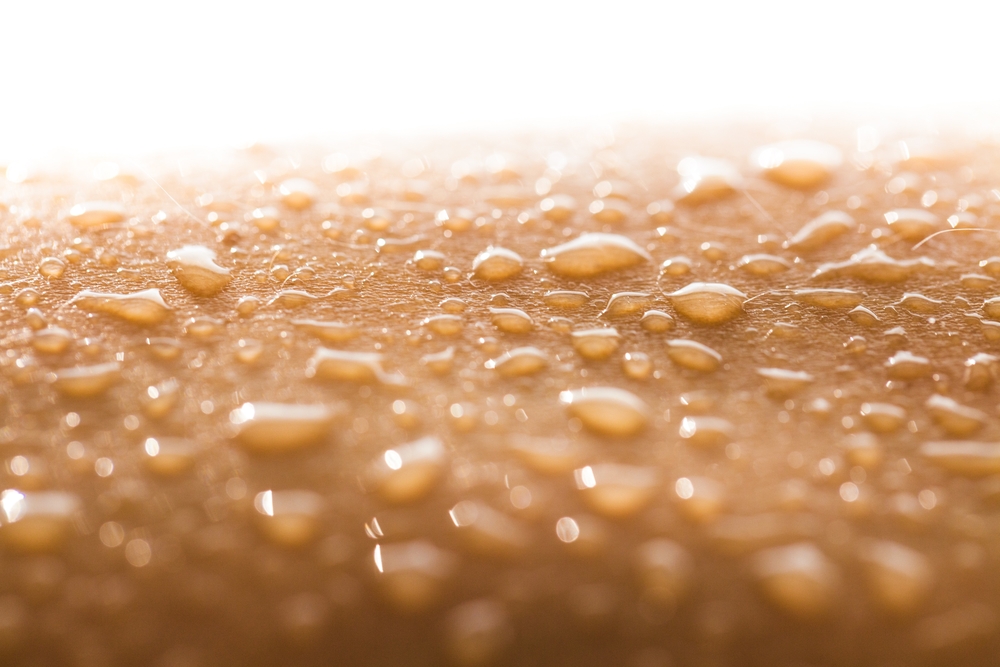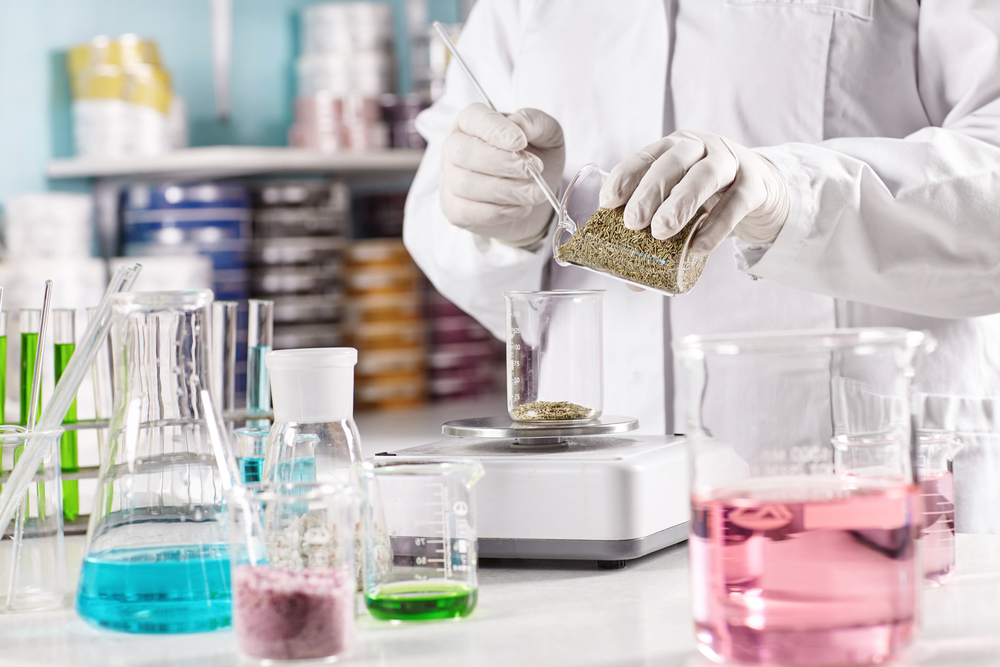- Sweating too much or too little could be indicative of more serious medical conditions.
- Sweating won’t help you lose weight or eliminate toxins.
- Certain skin conditions may be exacerbated by sweating and improper hygiene.
Sweating is part of a complex cooling system in our bodies — much like a thermostat. As the body’s core temperature rises (e.g. during exercise), the nervous system alerts the sweat glands to release moisture (sweat). The body then cools down when that moisture evaporates and heat is transferred from the body to the air.
Much has also been said about the purported health benefits of sweating. Here’s what a little perspiration can — and can’t — do for you.
What is sweat?
Sweat is mixture of water, salt, and in minimal amounts urea and lactic acid. It is released by two different types of sweat glands:
- Eccrine sweat glands are located all over our bodies and usually triggered by rising body temperatures and, occasionally, stress. These sweat glands open directly onto the skin for faster cooling.
- Apocrine sweat glands are more localized and found in the hairier parts of the body like under the arms, in the groin, around the anus, and even in the ears and nostrils. Sweat from these glands is released into the hair follicle before it makes its way to the skin’s surface. Apocrine sweat is more sensitive to stress, is cloudier and has a stronger odor than eccrine sweat.
How much sweat is too much?
Hyperhidrosis is a condition characterized by excessive sweating and affects 2 to 3% of the US population. Hyperhidrosis comes in two forms: primary (focal hyperhidrosis) and secondary (generalized hyperhidrosis).
- Focal hyperhidrosis affects a specific area. For example, you may experience a normal amount of sweating over most of your body, but excessive sweating under your arms, on your palms, or on your back. Although the condition is thought to have a hereditary component, the exact causes remain uncertain. Treatments may include anything from prescription antiperspirants and medication (anticholinergics) to Botox, electrical currents, and even surgery.
- Generalized hyperhidrosis occurs all over the body, especially during sleep. It is caused by medications or specific medical conditions, including pregnancy, diabetes, hyperthyroidism, and lymphoma. Typically, treating the underlying condition will take care of the excessive perspiration.
How do you know if you’re sweating too much? Consider if sweating is affecting your life negatively. It is also worthwhile to pay attention to any changes in your sweat in terms of quantity and odor.
» If you’re concerned that you may have hyperhidrosis, find a doctor near you to discuss treatment options.
Is it possible to sweat too little?
Hypohidrosis is a condition characterized by too little sweat. This condition stems from a variety of genetic and environmental factors.
Hypohidrosis can be inherited, as in the case of hypohidrotic ectodermal dysplasia. Individuals with this condition are born with few or even no sweat glands — the resulting hypohidrosis is so severe that it’s often termed anhidrosis for the complete lack of moisture on the skin.
More subtle cases of hypohidrosis can result from certain medical conditions, like diabetes, alcoholism, and Parkinson’s Disease. It can also stem from skin conditions such as heat rash and psoriasis, as well as from certain medications.
The condition can affect a small area or the whole body. The larger the affected area, the greater the risk of severe overheating, which in turn can lead to heat stroke and even death.
Unfortunately, treatment options for hypohidrosis are limited. If it is caused by another medical condition, treating the other condition might help resolve it. If it is caused by a medication, changing the medication may reverse the effects. In many cases though, moderate lifestyle changes will need to be undertaken in order to manage hypohidrosis.
Mild cases of hypohidrosis often go undiagnosed. The following symptoms can generally be observed in warm weather or following light exercise:
- Dizziness upon little physical exertion
- Muscle cramps or muscle weakness
- Severe redness and flushing of the face
- Overheating
Why does sweat smell bad?
On its own, sweat doesn’t actually have an odor. Sweat begins to smell when it comes into contact with bacteria on the skin: as the bacteria breaks the sweat down, it releases an odor. As such, sweat in any part of the body will develop an odor if left for long periods of time. Paradoxically, sweat is also said to fight bacteria by producing an antibacterial microbe called dermicidin.
Does sweating burn fat?
Contrary to popular belief, the act of sweating itself does nothing for our weight; sweat simply cools us down in our process of fat-burning physical activity.
Does sweating remove toxins?
Researchers have been at odds about this question over the years. Some studies, like this 2011 one that examined toxic elements in blood, urine, and sweat, concluded that sweat did contain trace elements of toxins, suggesting that sweat could be a means for eliminating said toxins.
On the other hand, physicians like Dr. Charles Smith of the University of Arkansas for Medical Science, state flatly that toxins cannot be eliminated via sweating. Dr. Smith goes on to say that inducing sweating to eliminate toxins is not only ineffective, but also potentially dangerous.
Overall, concrete evidence to whether sweating does in fact remove toxins is still lacking.
Can sweating cause acne?
Sweat can contribute to but is not a direct cause of acne. Sweat by itself does not clog pores or cause breakouts and inflammation. However, when combined with other factors, sweat can lead to acne and acne-related conditions.
For starters, moisture from exercise can encourage bacterial growth, which can lead to acne. What’s more, moist skin traps dirt and dust, clogging pores. For these reasons, it’s important to shower after exercise — not doing so might aggravate an existing acne problem or encourage outbreaks in people with otherwise clear skin.
Apocrine sweat is also a culprit in the development of folliculitis. Releasing sweat directly into the hair follicle, these glands can combine with bacteria to clog these follicles, leading to inflammation and red bumps.
» If you’re concerned about your acne, read Zwivel’s Guide to Acne Treatments or ask a doctor on our forum for advice.
Can sweating cause a rash or hives?
When sweat glands become blocked, they lead to heat rash, or miliaria. These blocked glands prevent sweat from reaching the skin’s surface, causing inflammation and little red bumps or pustules.
Miliaria is most likely to occur in skin creases where sweat becomes trapped, thus clogging the glands, and in areas where sweat is more prevalent. Restrictive clothing can also play a role in trapping sweat and clogging glands.
To avoid developing heat rash, wear loose and breathable exercise clothes. You can also try exercising in cooler areas (like an indoor gym) and taking frequent breaks to wipe sweat away.
Can sweating cause eczema?
Sweating won’t cause eczema, but it can exacerbate it. In fact, the presence of an intense itch after exercise is one way that doctors diagnose the condition.
Eczema is made worse through the dehydration caused by vigorous exercise. The salt in your sweat contributes to this problem by further drying out the skin. You can prevent this in a similar way as you might prevent heat rash: wear clothing that will allow your skin to breath, exercise in cooler areas to reduce sweating, and take frequent breaks to wipe sweat away.
Is sweating good for the skin?
Overall, sweat is a vital bodily function that serves as the body’s natural thermostat system. It is important, however, to be mindful of proper hygienic practices to prevent any undesired skin conditions that can be caused or exacerbated by the overgrowth of bacteria in a sweaty environment.









